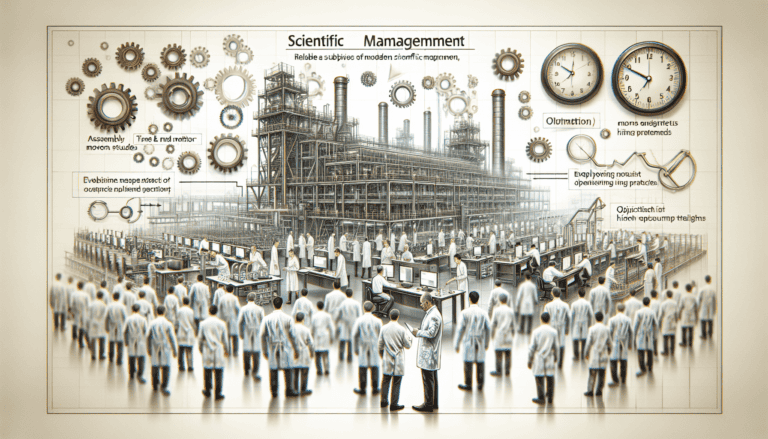Top Event Manager Interview Questions Revealed
Preparing for an interview as an event manager? It’s essential to be ready for the specific questions commonly asked in these interviews. By knowing what to expect, you can impress potential employers with your knowledge and skills in event management.
Key Takeaways:
- Being well-prepared for event manager interviews is crucial to success.
- Employers often ask about creative vision, attention to detail, and problem-solving abilities.
- Event managers should showcase their ability to use technology, build relationships, and handle stress.
- Resourcefulness and passion for event planning are key traits employers look for.
- Showcasing your expertise in these areas will position you as a strong candidate for event management roles.
The Importance of Creative Vision and Detail Orientation
When interviewing for an event manager position, it’s crucial to showcase your creative vision and detail orientation. Employers are interested in evaluating your planning process and ability to achieve success. They want to determine if you have a creative and innovative approach, pay attention to detail, and take pride in your work.
“Having a creative vision and attention to detail is essential in event planning. These qualities enable event managers to conceptualize unique experiences and ensure that every aspect of the event, from the smallest decor element to the overall theme, is executed flawlessly.”
Event managers are responsible for designing memorable and engaging experiences. They must bring their creative vision to life while carefully considering every detail to achieve an exceptional end result. Employers will likely ask event manager interview questions that assess your ability to think outside the box, problem-solve, and pay meticulous attention to even the smallest elements.
- How do you approach event design and incorporate unique creative elements?
- Can you provide an example of a time when your attention to detail significantly contributed to the success of an event?
- How do you ensure consistency in maintaining the event theme throughout all aspects?
- Tell us about a situation where your creativity helped you overcome a challenge during event planning.
The Systematic and Coordinated Approach to Event Planning
Event managers play a crucial role in orchestrating successful events, and their ability to approach planning with a systematic and coordinated mindset is key to their effectiveness. When interviewing candidates for event manager positions, employers look for individuals who demonstrate a strong understanding of the planning process and have the skills to ensure seamless execution. Let’s explore some essential aspects to consider when evaluating a candidate’s approach to event planning.
1. Aligning with the Process or Introducing New Approaches
Employers want to assess whether candidates align well with their established processes or if they can bring fresh and beneficial approaches to the table. Each company may have its own unique workflow and preferences, so it’s essential to evaluate a candidate’s compatibility with the existing system. However, an adaptable and innovative mindset that can introduce improvements is equally valuable to employers.
2. Active Listening and Understanding Client Needs
Event managers must actively listen to their clients to fully understand their needs, preferences, and objectives. Whether it’s a corporate conference, a wedding, or a music festival, client satisfaction is paramount. By incorporating their clients’ vision and desires into the planning process, event managers can create an unforgettable experience. During the interview, employers may inquire about a candidate’s strategies for gathering client requirements and how they demonstrate active listening.
“Listening is one of the most important skills for an event manager. By paying careful attention to what clients want, we can create an event that exceeds their expectations and leaves a lasting impression.” – Samantha Anderson, Senior Event Manager
3. Embracing Organization and Attention to Detail
Event managers need to showcase their organizational skills and attention to detail to manage multiple tasks effectively. From crafting detailed timelines to coordinating with vendors and handling logistics, every aspect of event planning requires precision. During the interview, employers may ask candidates for examples of how they have successfully managed intricate details in previous events and their strategies for maintaining organization throughout the planning process.
4. Collaborating with Cross-Functional Teams
Successful event planning involves collaboration with various teams, such as marketing, production, and design. It’s essential for event managers to demonstrate the ability to work harmoniously with cross-functional teams, fostering effective communication and cooperation. Employers may inquire about a candidate’s experience with cross-team collaboration and their approach to managing diverse perspectives.
5. Problem-Solving and Adaptability
Events rarely go exactly as planned, and unexpected challenges are to be expected. Event managers must possess strong problem-solving skills and be adaptable in the face of unforeseen circumstances. During the interview, employers may present hypothetical scenarios to assess a candidate’s ability to handle pressure, make decisions on the spot, and find innovative solutions to overcome obstacles.
By assessing a candidate’s systematic and coordinated approach to event planning, employers can gauge their ability to handle the complexities of the role and ensure successful event execution. Remember, event managers not only need to be organized and detail-oriented but also possess excellent communication skills, creativity, and the ability to thrive in a fast-paced environment.
The Ability to Utilize Technology and Tools
Event managers must possess a strong aptitude for utilizing technology and tools to enhance efficiency and streamline event planning processes. In today’s digital age, technological proficiency is no longer a bonus but a necessary skill for event management professionals. Employers want to ensure that candidates can adapt to ever-evolving technological advancements and effectively leverage various tools to deliver exceptional results. During the interview process, candidates may encounter questions that evaluate their ability to navigate technology and demonstrate their expertise in utilizing event management software, project management tools, and online communication platforms.
An event manager’s proficiency in technology extends beyond just using tools. Think of it as a strategic approach to technology implementation, where the goal is to leverage technology to optimize processes, increase productivity, and enhance overall event experiences. Employers are interested in candidates who not only embrace technology but also possess the aptitude to identify and implement the most suitable tools for specific event requirements.
“We’re looking for event managers who can not only use technology proficiently but also explain how they strategically incorporate tools into their workflows to maximize efficiency and deliver successful events. It’s about finding the right balance between human interaction and the benefits that technology brings to the table.”
The Importance of Communication and Explanation
While being technologically savvy is crucial, effective communication skills are equally important in an event management role. Event managers must be able to clearly articulate how they utilize technology and tools, as well as make complex processes understandable to clients and team members who may not possess the same technical expertise.
- Can the candidate effectively explain the benefits of a particular technology or tool to a non-technical client?
- Can they communicate how using certain software or tools can help streamline event planning and execution?
- Are they capable of training and guiding team members to use technology effectively?
Demonstrating exceptional communication and explanation skills can set candidates apart from the competition. It showcases their ability to bridge the gap between technology and the event planning process.
Using English for Meetings and Professional Communication
In addition to being an excellent communicator, event managers working in international or English-speaking environments must be confident in using the English language for meetings. Whether you’re leading a client kickoff, presenting to stakeholders, or discussing logistics with cross-functional teams, clear and professional English is essential.
Statistics show that English is one of the most crucial languages to learn. This backs up the importance of your English skills as the location doesn’t have to be England for your meeting English will commonly be used in other areas across the world, allowing everyone to communicate clearly with each other.
Employers may assess your meeting language skills in interviews by asking:
-
How do you handle discussions with international clients or teams?
-
Describe a time you led or contributed to a team meeting.
-
How do you ensure clarity and alignment when coordinating with multiple stakeholders?
To prepare, it’s useful to practise the kinds of expressions commonly used in formal workplace meetings. These include:
|
Purpose |
Phrases in English for Meetings |
|
Making a suggestion |
“I’d recommend we consider…” / “Could we explore the option of…” |
|
Clarifying information |
“Just to clarify…” / “What exactly do you mean by…?” |
|
Sharing an opinion |
“From my perspective…” / “I believe this approach works best…” |
|
Interrupting politely |
“Sorry to interrupt, may I add something here?” |
|
Summarising or closing |
“Let’s recap the key decisions…” / “So to summarise…” |
|
Asking for input |
“How does that sound to everyone?” / “Do you have any thoughts on this?” |
Being able to navigate meetings with the right tone and language not only shows professionalism but also demonstrates that you’re prepared to work in high-pressure environments with diverse teams. This is particularly important in the events industry, where stakeholder communication can directly impact project timelines and client satisfaction.
Pro tip: Practise these phrases in mock interview scenarios or meetings with friends or mentors. It helps build fluency and confidence for real-world use.
Strategies for Answering Technology and Tools-related Questions
When answering event manager interview questions about technology and tools, it’s crucial to not only showcase technical expertise but also discuss specific examples, success stories, and the impact of technology on previous events you have managed. Here are a few strategies to help you provide a well-rounded and impressive response:
- Highlight experience: Discuss your experience using various event management software, project management tools, and online communication platforms. Emphasize how you have leveraged these tools to improve event processes, increase efficiency, and enhance attendee experiences.
- Connect technology to event outcomes: Explain how your utilization of technology directly translates to successful events. Discuss specific instances where the strategic use of technology has led to cost savings, increased engagement, or enhanced event logistics.
- Show willingness to adapt: Demonstrate your enthusiasm for learning new technology systems and tools. Emphasize your adaptability and ability to stay updated with the latest trends and advancements in event technology.
By effectively conveying your technological aptitude, communication skills, and enthusiasm for utilizing tools, you can position yourself as a strong candidate for event management positions that require a tech-savvy mindset.
| Key Points to Discuss in Technology and Tools-related Questions: |
|---|
| Experience using event management software, project management tools, and online communication platforms |
| Success stories highlighting the impact of technology on previous events managed |
| Ability to connect technology utilization to tangible event outcomes |
| Willingness to learn and adapt to new technology systems and tools |
Problem-Solving and Conflict Management Skills
Event managers play a crucial role in ensuring the smooth execution of successful events. As part of their job, they need to be quick on their feet and possess effective problem-solving and conflict management skills. During interviews, employers often assess candidates’ abilities in these areas to determine their suitability for the role.
When faced with unexpected challenges or conflicts, event managers must be able to think critically and find solutions in real-time. This requires the ability to analyze the situation, identify the root cause of the problem, and implement effective strategies to address it. Employers look for candidates who can demonstrate their problem-solving skills by sharing examples of difficult situations they have successfully resolved in the past.
Collaboration is another essential aspect of event management. Event managers work closely with their team members, clients, and various stakeholders to ensure a successful event. Effective collaboration requires interpersonal skills, the ability to listen actively, and the capacity to communicate ideas and expectations clearly. During interviews, employers may inquire about candidates’ experiences in collaborating with others and managing conflicts that may arise during the event planning process.
“Event managers need to be quick on their feet and effective problem solvers.”
Conflict management is another critical skill that event managers must possess. Events can be high-pressure environments, and conflicts may arise among team members, vendors, or clients. Event managers need to handle these conflicts in a professional and timely manner to maintain positive relationships and keep the event on track. Employers look for candidates who can demonstrate their ability to manage conflicts by showcasing examples of challenging situations they have resolved through effective communication, negotiation, and compromise.
In addition to problem-solving and conflict management skills, event managers must also possess strong leadership qualities. They need to effectively lead their team, delegate tasks, and make decisions that align with the overall objectives of the event. During interviews, employers may ask candidates to provide examples of their leadership experiences and how they have successfully motivated and guided their team members.
Overall, event managers who demonstrate exceptional problem-solving and conflict management skills are sought after in the industry. By effectively addressing challenges and resolving conflicts, they can ensure the success of events and deliver exceptional experiences to clients and attendees.
| Problem-Solving and Conflict Management Skills | Key Points |
|---|---|
| Ability to think critically and find solutions in real-time | Employers assess candidates’ problem-solving skills through examples of past experiences. |
| Effective collaboration with team members, clients, and stakeholders | Candidates should demonstrate their ability to communicate and work well with others. |
| Conflict management and resolution | Candidates should showcase their ability to handle conflicts professionally and maintain positive relationships. |
| Leadership qualities | Event managers should demonstrate their ability to lead and motivate a team. |
Building and Maintaining Relationships
As an event planner, strong interpersonal skills are essential for success in the field. The ability to initiate and maintain relationships with various stakeholders is a crucial aspect of the job. Employers seek candidates who not only possess solid interpersonal skills but also demonstrate mutuality in relationships and genuinely enjoy deepening connections with others.
When interviewing for event management positions, you can expect questions that assess your ability to build and maintain relationships effectively. Here are a few event manager interview questions related to this skill:
- How do you establish rapport with clients and vendors to ensure successful collaboration?
- Can you provide an example of a challenging situation where you successfully resolved conflicts between team members?
- How do you approach networking and developing relationships with industry professionals?
- Describe a time when you had to negotiate with a difficult client or stakeholder. How did you handle it?
These questions not only assess your ability to forge and nurture relationships but also demonstrate your conflict resolution and negotiation skills, which are essential in event management.
Building and maintaining relationships is an ongoing task for event planners. It involves effective communication, active listening, and the ability to understand and address the needs and concerns of all stakeholders involved. By fostering positive relationships, you can create a network of reliable contacts, gain access to valuable resources, and ultimately ensure the success of your events.
Table: Sample Event Manager Interview Questions – Building and Maintaining Relationships
| Interview Question | Description |
|---|---|
| How do you establish rapport with clients? | This question assesses your ability to initiate and maintain positive relationships with clients, ensuring successful collaboration throughout the event planning process. |
| Can you describe a time when you successfully resolved conflicts between team members? | Conflict management is a critical skill for event managers. This question evaluates your ability to navigate interpersonal dynamics and maintain a harmonious working environment. |
| How do you approach networking and building relationships with industry professionals? | Networking plays a crucial role in the event management industry. This question assesses your ability to establish connections, expand your professional network, and stay updated on industry trends. |
| Describe a situation where you had to negotiate with a difficult client or stakeholder. How did you handle it? | Negotiation skills are essential for event planners. This question evaluates your ability to navigate challenging situations, manage expectations, and reach mutually beneficial agreements. |
Flexibility and Adaptability in Dealing with Clients
Event managers often work with different types of clients, requiring flexibility in their approach. Employers want to know if the candidate can maintain composure in frustrating situations, problem solve, and exhibit flexibility or pushback when necessary.
When it comes to event management, client satisfaction is paramount. The ability to adapt to unforeseen circumstances and meet changing client needs is essential for success. Let’s explore some key interview questions that assess an event manager’s flexibility and adaptability in dealing with clients:
- Can you provide an example of a time when you had to adjust your event plans due to a last-minute request or change from the client?
- How do you handle situations where clients have conflicting demands or expectations?
- Tell us about a time when you had to manage a difficult client. How did you address their concerns while still ensuring the success of the event?
- What steps do you take to ensure effective communication and collaboration with clients throughout the event planning process?
These questions not only evaluate an event manager’s ability to adapt to changing circumstances but also assess their problem-solving skills, communication abilities, and client relationship management. A qualified candidate should demonstrate the capacity to stay calm under pressure, find creative solutions, and maintain strong client relationships even in challenging situations.
Being willing to challenge clients when necessary and push back politely is an important trait of a successful event manager. It shows the ability to balance client satisfaction with professional expertise. Employers value professionals who can strike this delicate balance while ensuring that the event’s objectives are met and expectations are appropriately managed.
“The success of an event hinges on an event manager’s ability to adapt and be flexible. Client needs can change at any moment, and you need to be prepared to handle those changes while keeping the overall goals in mind.” – Lauren Taylor, Senior Event Manager
To further illustrate the importance of flexibility and adaptability in event management, let’s take a look at the following table:
| Qualities | Event Manager A | Event Manager B | Event Manager C |
|---|---|---|---|
| Adaptability | Excellent | Good | Poor |
| Problem-solving | Strong | Strong | Weak |
| Client Relationship Management | Excellent | Good | Good |
In this example, Event Manager A stands out as the most suitable candidate, possessing excellent adaptability, strong problem-solving skills, and exceptional client relationship management abilities. Event Manager C, on the other hand, lacks the necessary adaptability skills required to fulfill clients’ changing needs effectively.
Ultimately, a successful event manager must demonstrate the ability to handle unexpected challenges, adjust plans accordingly, and collaborate closely with clients to ensure their satisfaction. Employers value professionals who can navigate through adversity, deliver successful events, and maintain strong client relationships.
Handling Stress and Maintaining Composure
Event planning is a fast-paced and demanding job that requires event managers and coordinators to handle stress and tight deadlines with composure and confidence. Employers want candidates who can stay productive under pressure and effectively prioritize tasks. During the interview process, you may be asked the following questions to assess your ability to handle stress and maintain composure:
- Can you describe a time when you faced a high-pressure situation during an event? How did you handle it?
- What strategies do you use to stay calm and focused when faced with tight deadlines?
- How do you prioritize tasks when multiple deadlines overlap?
- Have you ever encountered an unexpected problem during an event? How did you handle it?
- How do you manage your time and avoid feeling overwhelmed when dealing with multiple projects simultaneously?
Employers want to ensure that you have the ability to handle the fast-paced nature of the job without sacrificing the quality and success of the events you manage. By demonstrating your composure, ability to handle stress, and effective time management skills, you can showcase yourself as a capable and reliable event manager or coordinator.
Staying calm under pressure is crucial in event planning. It allows you to think clearly, make rational decisions, and effectively problem-solve when unexpected challenges arise.
As an event manager or coordinator, you must show that you can maintain composure and focus, even in stressful situations. Employers want to see your ability to effectively handle stress as it directly impacts the overall success of the events you organize. By responding confidently to interview questions related to stress and composure, you can demonstrate that you are well-equipped to thrive in the demanding field of event planning.
| Tips for Handling Stress and Maintaining Composure |
|---|
| 1. Take breaks and practice self-care to recharge and refocus. |
| 2. Prioritize tasks based on urgency and importance to avoid feeling overwhelmed. |
| 3. Develop effective time management skills to stay organized and meet deadlines. |
| 4. Practice deep breathing exercises or meditation to promote relaxation and reduce stress levels. |
| 5. Seek support from colleagues or mentors to gain perspective and share the workload. |
By incorporating these strategies into your event planning routine, you can better manage stress and maintain composure, ensuring successful and well-executed events.
Resourcefulness and Thinking on Your Feet
Resourcefulness and the ability to think quickly are crucial skills for event managers to handle unexpected situations effectively. During the interview process, employers will assess your problem-solving abilities, your proficiency in managing difficult individuals, and your capability to make difficult decisions when necessary.
Problem-Solving Scenarios
An essential aspect of an event manager’s role is the ability to find solutions to unexpected challenges. Employers may present you with hypothetical scenarios and ask how you would approach and resolve them. They want to gauge your problem-solving process and determine if you possess the analytical skills necessary for effective decision-making.
Interviewer: “Imagine you have planned an outdoor event, and it starts pouring rain. What steps would you take to ensure the success of the event?”
You: “In such a scenario, I would quickly assess the situation and identify alternatives. I would contact the venue and explore options for indoor spaces or rain covers. If necessary, I would coordinate with vendors to make last-minute adjustments. Additionally, I would communicate with the attendees and stakeholders to manage their expectations and provide updates on any necessary changes.”
Difficult Individual Management
Event managers often encounter challenging personalities during the planning and execution stages. Employers want to determine if you have the skills to handle difficult people in a professional and effective manner.
Interviewer: “Tell me about a time when you had to deal with a difficult client. How did you approach the situation and what was the outcome?”
You: “In a previous event, a client was dissatisfied with a vendor’s performance and expressed their frustration. I remained calm and empathetic, actively listening to their concerns. I offered solutions to address their dissatisfaction and negotiated with the vendor to rectify the issue. Ultimately, I not only resolved the conflict but also strengthened the client’s trust in our ability to deliver a successful event.”
Making Difficult Decisions
Event managers often find themselves in situations where they need to make difficult decisions quickly. Employers want to assess if you can handle the pressure and make choices that align with the overall objectives of the event.
Interviewer: “Imagine you are running behind schedule for an event. What steps would you take to get things back on track?”
You: “If we are behind schedule, I would gather the event team to assess the critical tasks and determine where adjustments can be made. I would prioritize tasks, delegate responsibilities, and communicate any necessary changes to the team. By effectively managing resources and adapting the plan as needed, I would ensure that we meet the event’s objectives while maintaining a high standard of quality.”
Summary
Demonstrating resourcefulness and quick thinking during an interview is essential for event managers. By showcasing your problem-solving skills, ability to manage difficult individuals, and capacity to make difficult decisions, you can position yourself as a confident and capable event management professional.
Passion for Event Planning and Personal Strengths
During an event manager interview, employers want to assess not only your technical skills and experience but also your passion for event planning and your personal strengths in the field. Demonstrating excitement and passion for your work is essential in showing employers that you are genuinely invested in creating memorable and successful events. Additionally, having a clear understanding of your personal strengths and how they contribute to event planning will help you stand out as a strong candidate.
Why Passion Matters
Passion is a driving force that motivates event managers to go above and beyond in their work. When you are passionate about event planning, it shows in your dedication, creativity, and attention to detail. Employers seek candidates who have a genuine love for what they do, as it often translates into outstanding results and client satisfaction.
Having passion for event planning allows you to approach challenges with enthusiasm and a positive mindset, enabling you to think outside the box and find innovative solutions. It also helps you maintain a high level of energy and commitment throughout the event planning process, even when faced with tight deadlines and demanding situations.
Identifying Your Personal Strengths
In addition to passion, understanding and articulating your personal strengths is crucial in an event manager interview. Employers want to know what sets you apart and how your strengths align with the demands of the role.
Reflect on the skills and attributes that make you an exceptional event manager. Are you highly organized? A skilled communicator? Do you excel in problem-solving or have a talent for negotiation? Take the time to identify your strongest qualities and consider real-life examples that illustrate how these strengths have contributed to successful event planning.
Showcasing Your Passion and Personal Strengths
Throughout the interview process, it’s important to find opportunities to showcase your passion for event planning and highlight your personal strengths. Here are a few ways to effectively demonstrate your enthusiasm and expertise:
- Speak passionately about specific events or projects you have worked on and how they have shaped your understanding of the field.
- Share stories that highlight your personal strengths in action, such as successfully resolving a difficult situation or implementing a creative solution.
- Discuss any additional certifications, training, or continuous learning you have pursued to enhance your skills and knowledge in event management.
- Be confident when discussing your accomplishments and contributions to past events, emphasizing the positive outcomes that resulted from your efforts.
Examples of Personal Strengths in Event Planning
| Personal Strength | Explanation |
|---|---|
| Exceptional organizational skills | Proactively plan and coordinate all aspects of an event, ensuring smooth execution and timely delivery. |
| Strong communication skills | Effectively communicate with clients, vendors, and team members to ensure everyone is informed and aligned. |
| Creative problem-solving abilities | Quickly adapt and find solutions to unexpected issues, minimizing disruptions to the event. |
| Attention to detail | Meticulously review all event details and materials to ensure accuracy and quality. |
| Ability to work under pressure | Stay calm and composed in high-stress situations, making sound decisions to keep the event on track. |
By showcasing your passion for event planning and effectively communicating your personal strengths, you will impress employers and stand out among other candidates. Remember to share specific examples and stories that demonstrate your enthusiasm, expertise, and ability to contribute to successful event planning.
Conclusion
Successfully navigating an event manager interview requires a diverse set of skills and qualities. By preparing for the specific questions that may arise and showcasing your expertise in areas such as creative vision, problem-solving, and relationship-building, you can position yourself as a standout candidate for event management positions.
During the interview process, be ready to demonstrate your ability to approach event planning systematically and with attention to detail. Highlight your comfort with utilizing technology and your willingness to adapt to new tools. Showcase your problem-solving skills and your ability to manage conflicts efficiently and effectively.
Additionally, emphasize your interpersonal skills and your ability to build and maintain relationships with various stakeholders. Demonstrate your flexibility in dealing with clients and your ability to handle stress and maintain composure in fast-paced environments. Finally, showcase your resourcefulness and quick thinking in handling unexpected situations that may arise.
Remember, passion for event planning and understanding your personal strengths in the field are key. By combining your expertise with a strong enthusiasm for the role, you can leave a lasting impression on potential employers and increase your chances of securing the event management position you desire.







